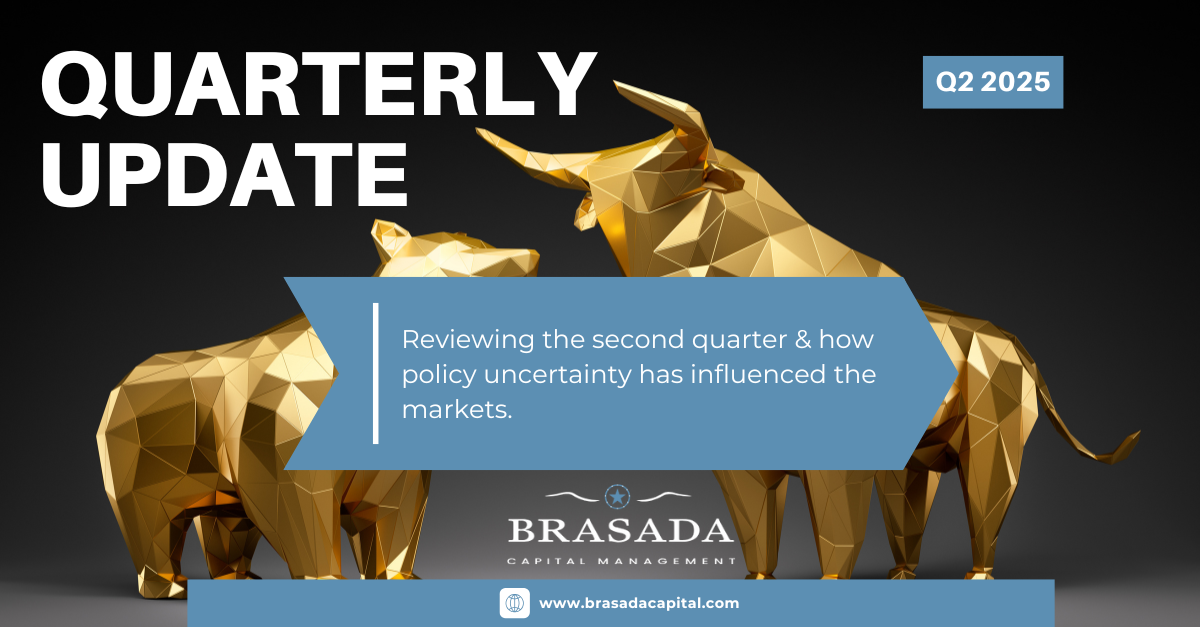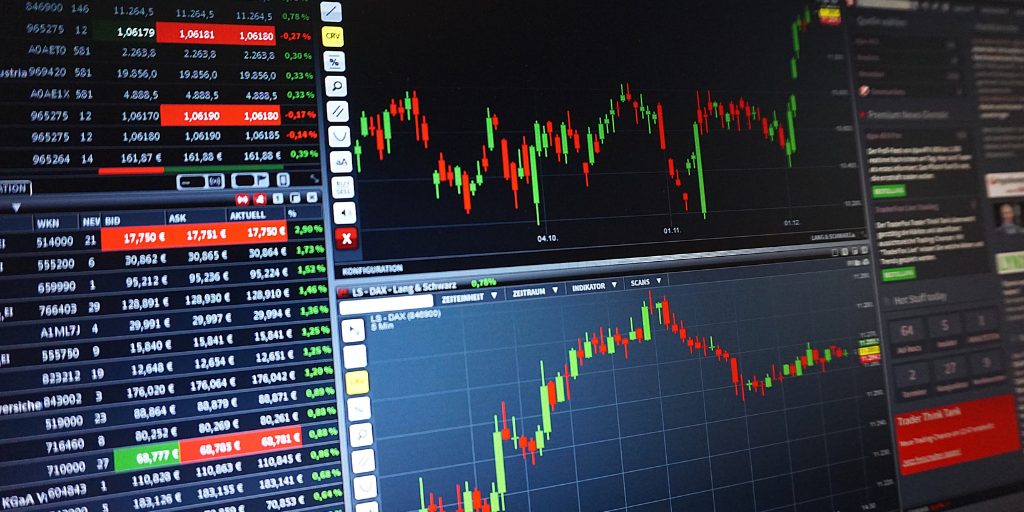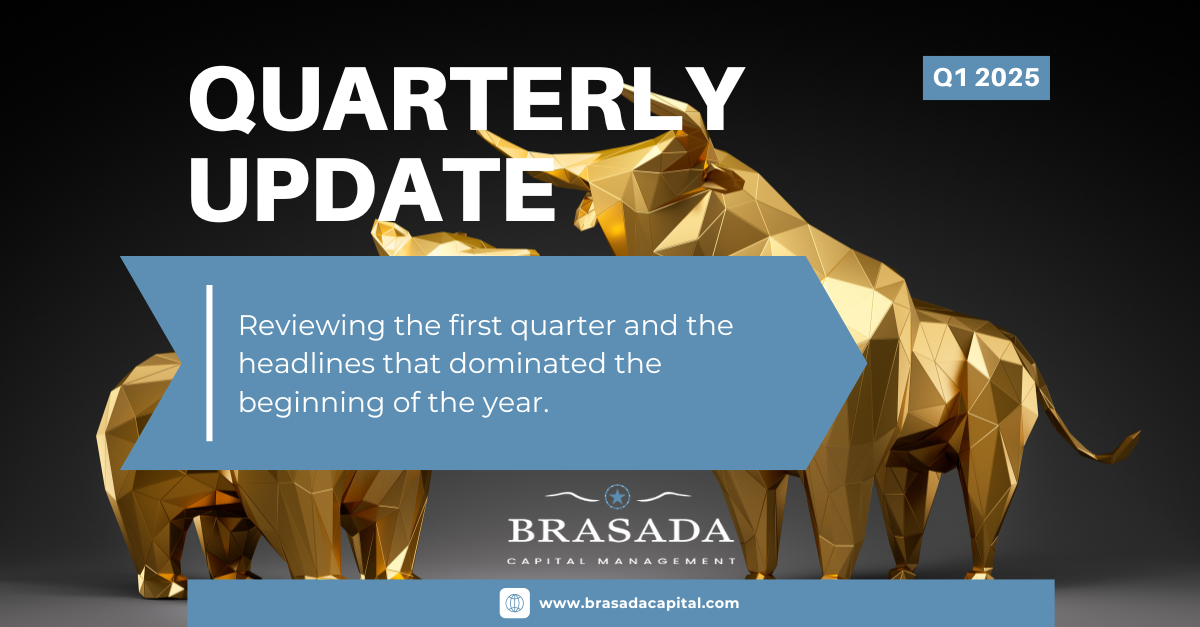Second Quarter of 2025
“Far more money has been lost by investors preparing for corrections or trying to anticipate corrections than has been lost in corrections...

The Upside of Down Markets
The market experienced a sharp sell-off over the past few days after a weaker than expected ISM payrolls report, the unwinding of the Japanese Yen carry trade, and expanding geopolitical risk in the middle east. It is important to remember that we have no crystal ball as to what the near term will bring and even if we did, there would still be no way of knowing how markets would react to those events. Recall that over just the past few years we have been through a trade war with China, a global pandemic, a contested presidential election, a banking crisis, what could be characterized as a proxy war between the West and Russia in Ukraine, and now there is this crisis in the Middle East. What we can say, however, is that over the long run, 100% of all past crises have proven to be good buying opportunities.
And yet, with each new bearish headline, there were many investors that threw in the towel thinking they could time the market – however, most subsequently find themselves buying back in at higher levels. As Peter Lynch has said, “Far more money has been lost by investors in preparing for corrections, or anticipating corrections, than has been lost in the corrections themselves.”
The only thing we can predict with some certainty is that we will live through many corrections over the years to come and that we should try to benefit from them as much as possible. This means having a fundamental basis for what we own, and buying more when prices are falling relative to a business’s intrinsic value. As you know, we seek to maintain a concentrated portfolio of high-quality businesses and bonds across our strategies. Outside of those we own actively, there are many others that we know well and monitor closely. There are times such as this recent pullback when high-quality companies get sold off unnecessarily and we are presented with an opportunity to buy a new position at a discounted price.
This first principled approach of investing in businesses rather than stocks is that it gives us a natural advantage during periods of increased volatility. When other market participants are scrambling to guess whether the market is in a recession, or whether the FED will raise or cut rates by 75 or 100 bps, we can instead calmly assess the prospects of our underlying businesses over the next 3, 5, and 10 years.
Often, what we find is that the prospects for our holdings are getting better at the same time their stock prices are falling. While it is never fun to see stock prices fall, we do believe that market corrections are necessary and ultimately good for an investor’s long-term performance.
In particular, we believe there are two key benefits resulting from market corrections – firstly, that excesses get corrected, and secondly, that new opportunities are created.
Bear Markets Alleviate Excesses
Counterintuitively, markets that are flush with liquidity (most markets for the past decade) are not necessarily the best environment for best-in-class businesses to thrive. This is because easy liquidity allows non-economical competitors to survive longer than they would otherwise.
Capitalism at its best is simply an economic system to reward enterprises that create value for society, and to punish those that don’t. We would argue that the easy money policies of this past decade have made the later part of the statement less true – in that unprofitable companies have not been punished, they have instead been able to thrive on this easy liquidity. Perhaps that situation is now changing as asset prices come down, interest rates rise, and liquidity is slowly withdrawn.
Consider the bubble-like valuations we have seen in relatively unproductive sectors of our economy – whether that be profitless growth companies, or the middlemen who were happy to use those excesses to launch SPACs or “Innovation” funds, or the amount of capital and talent that has been arguably wasted in the cryptocurrency space.
Therefore, while market corrections are difficult in the moment, it is important to remember that they are necessary to filter out the productive enterprises from the unproductive enterprises.
We always strive to maintain positions in companies that can not only survive these downturns, but which will ultimately do better going forward than they would have otherwise, as they are able to use market volatility to both buyback their shares at depressed prices, as well as consolidate their markets as less robust competitors retreat. This brings us to the next point.
Bear Markets Can Create Opportunities
We have been in this industry for a long time, and it still amazes us how quickly market participants will sell down otherwise great investments simply because they have a negative view over the next quarter or 12 months. When this has happened in the past – whether it was due to a recession scare, a geopolitical crisis, or monetary policy – we believe it has turned out to be a great buying opportunity for those who could rationally buy on a longer timeframe.
Why is this the case? Surely there are very smart individuals on Wall Street that understand the fundamental truth that when stock prices go down, all else equal, their forward returns go up? There are two main reasons.
Firstly, most of Wall Street makes their money based on assets under management, not on performance – so they are incentivized to simply gather more and more clients with actual performance being a secondary goal. As such, the key priority for these firms is to avoid losing clients, which means reducing short-term volatility. This results in panic selling at the drop of a hat, as any short-term underperformance cannot be tolerated.
Secondly, the vast majority of the investment industry uses volatility as their measure of risk. The main result of this approach is that any price declines are exacerbated by risk models telling portfolio managers they must sell more of whatever is falling in price. What happens is as follows: share prices fall, which causes mathematical volatility to rise, so risk models tell portfolio managers they have to sell more stock to reduce their risk, and then these additional stock sales drive prices lower still, which causes volatility to rise further, etc., etc.
This blatant lack of rationality has persisted for decades, with little sign of change. And while entirely unhelpful for the very clients it claims to protect, this feature of markets does create opportunities for the genuine investor.
Conclusion
Whatever the reason for these sell-offs – bear markets in high-quality companies are ultimately a good thing for us and any other long-term investors. We believe our businesses get the benefit of seeing some of their competitors disappear, and then we get the benefit of being able to secure higher future investment returns by buying these high-quality companies at lower prices.
In very deep bear markets, like that we saw during the Covid crisis, we may even get the opportunity to significantly change our portfolio, as high-quality companies that we couldn’t own before reach valuations where we can finally be owners. We are ready for whatever opportunities may come our way.
This post is for information purposes only and should not be construed as an offer or solicitation for the sale or purchase of any securities. Past performance is no guarantee of future performance. The information provided is believed to be from reliable sources, but no liability is accepted for any inaccuracies. Brasada Capital Management, LP is an investment adviser registered with the U.S. Securities and Exchange Commission. Registration does not imply a certain level of skill or training. If you have any questions, please contact our team.

“Far more money has been lost by investors preparing for corrections or trying to anticipate corrections than has been lost in corrections...

UNDERSTANDING TARIFFS: ECONOMIC IMPACT, RATIONALE AND CONTROVERSIES

Market Selloff Dear Clients and Friends, Thursday and Friday marked the 4th time in the last 50 years when the S&P 500 had a 2-day drop of over...